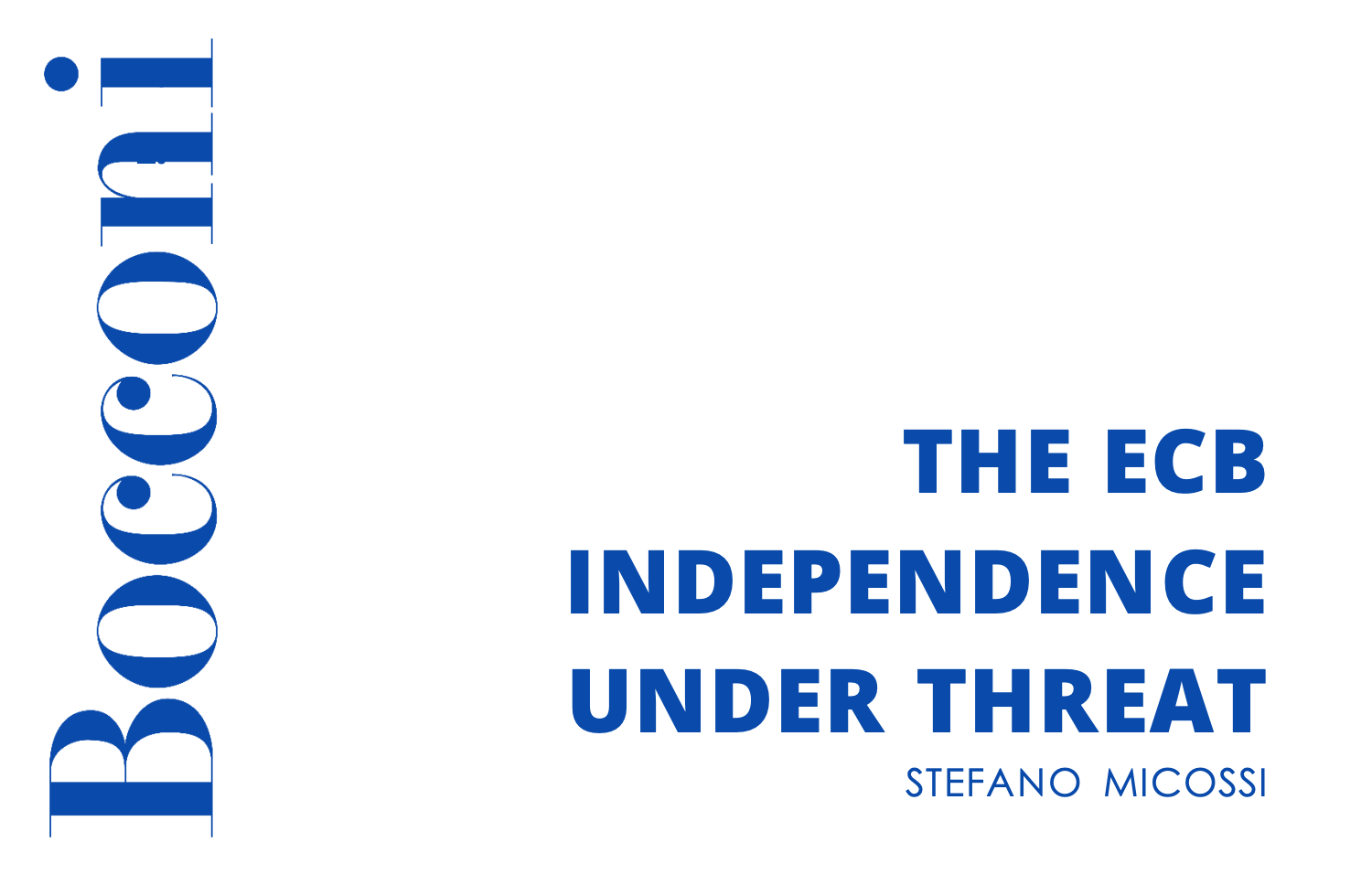Policy Brief: The ECB Independence Under Threat
ECB independence is inconsistent with the present overreach of the institution into the economic policies of the member states, a function for which the ECB is not accountable.

The great success story in macro-economic policy making over the past four decades has been the attribution to central banks of independent powers to achieve price stability. In the new monetary framework, independence has been linked inextricably to the narrow mandate on controlling inflation.
However, developments since the great financial crisis of 2008-09 have compromised the simplicity of the monetary policy framework, leading to expanded involvement of the central banks in the market for public and private securities, with inevitable large effects on borrowers’ incentives.
This issue has taken special prominence within the European Monetary Union, where the purchase of large amounts of government securities by the ESCB has raised fresh questions about the interaction between monetary and fiscal policies – since the prohibition for the central bank to help the financing of public sector deficits is a key pillar of the monetary constitution.
This paper argues that indeed over the past decade and a half the ECB has overstretched its powers into the domain of national economic policies, by playing an expanded role in the enforcement of common European policies and by taking up responsibilities for the orderly functioning of government securities markets of high-debt countries – functions which exceed its mandate and for which the ECB is not accountable.
Therefore, we argue that ECB powers must be brought back to the original Treaty design of strict separation between monetary policy and all other economic policies. To this end, it is also necessary to disentangle the ECB from its involvement in member states’ fiscal policies by drastically reducing its government securities portfolio, bringing it down to the size required to manage monetary policy interventions.
To do this, we propose to gradually transfer a large share of these securities to the European Stability Mechanism (ESM), which would then become a true debt agency for the European Union. The ESM liabilities would also become the safe asset required to provide the euro financial system with a well-functioning unified money market.
-
FilePB5_ECBindipendence.pdf (828.89 KB)
IEP@BU does not express opinions of its own. The opinions expressed in this publication are those of the authors. Any errors or omissions are the responsibility of the authors.
